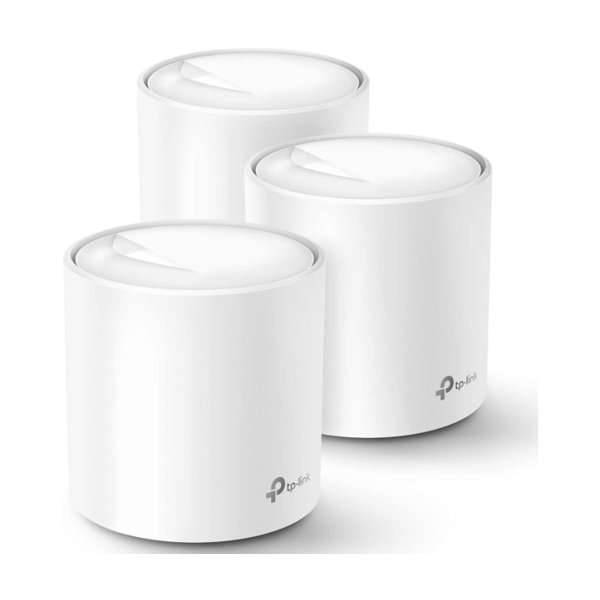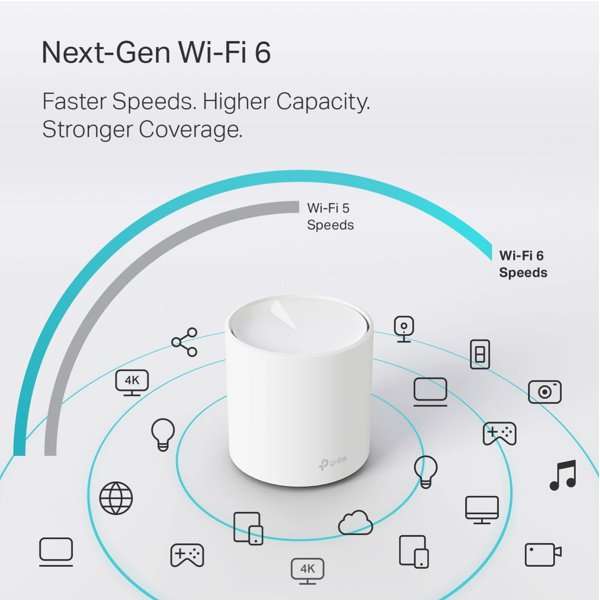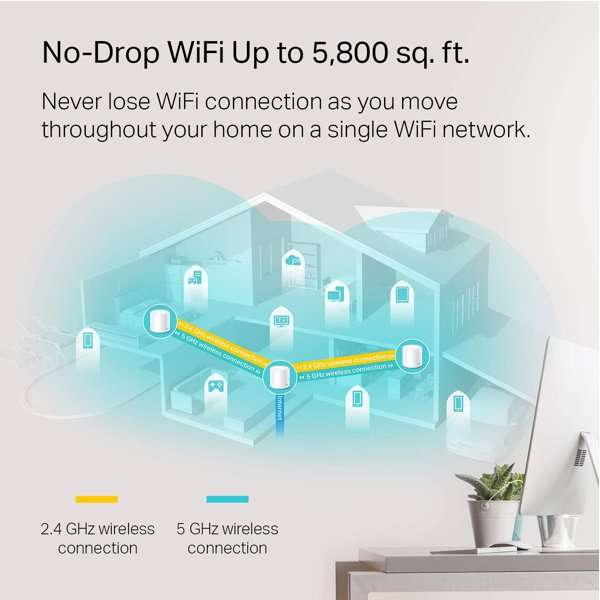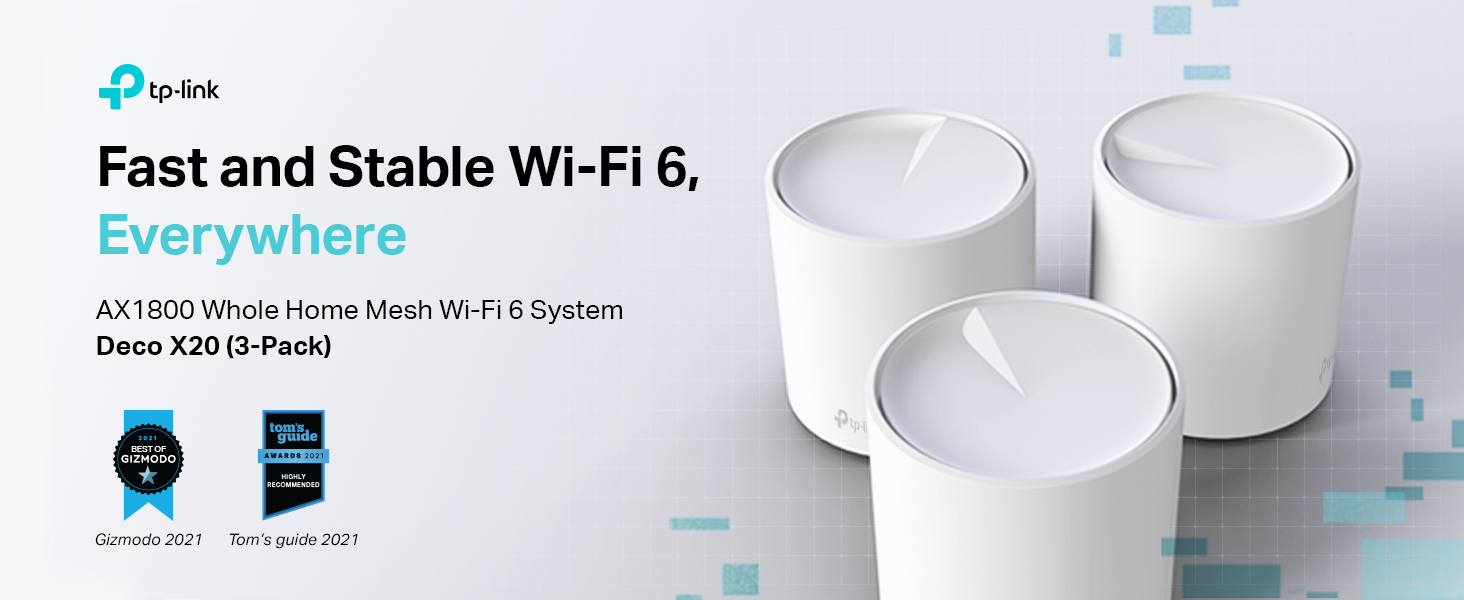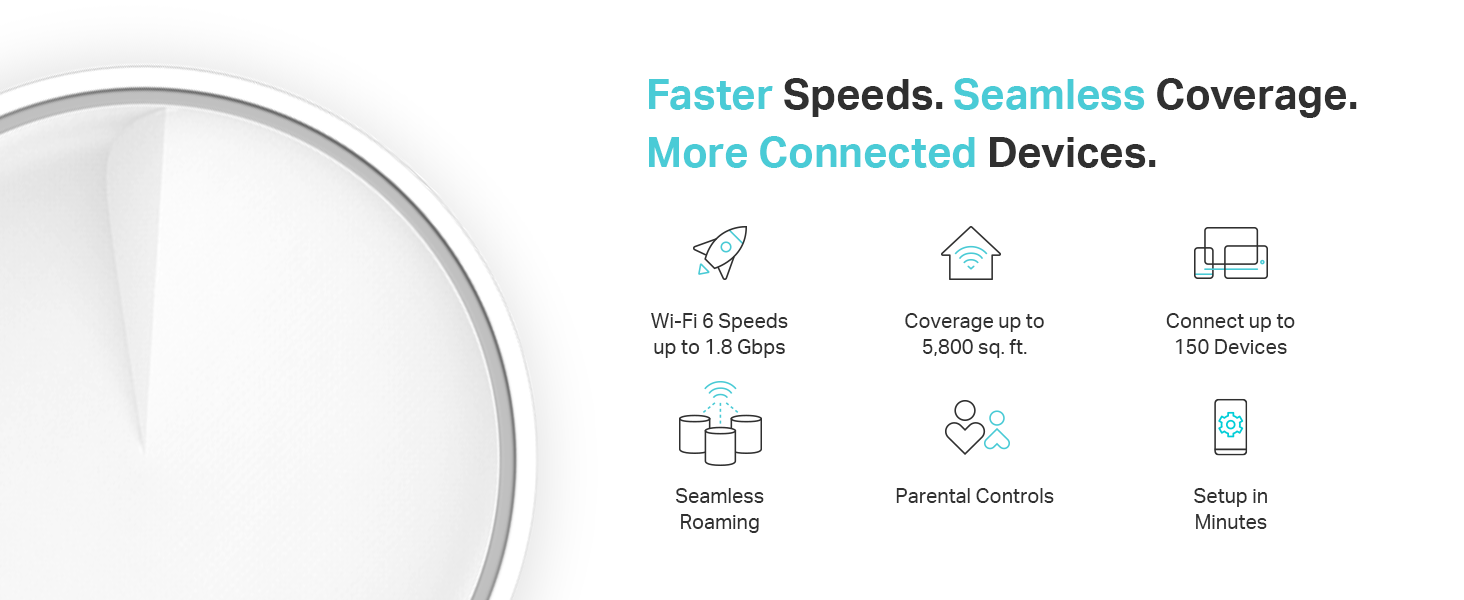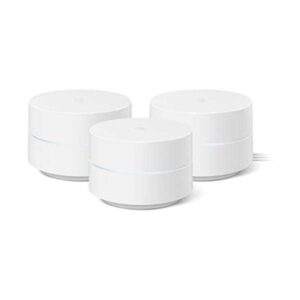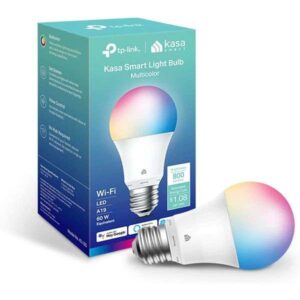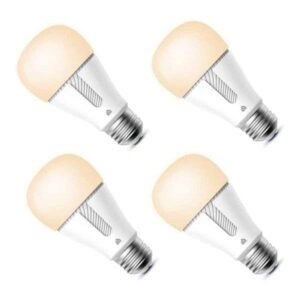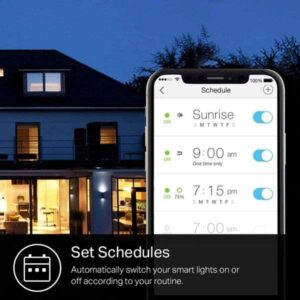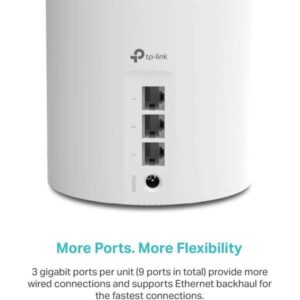TP-Link Deco X20
More Ethernet Ports for More Options
TP-Link Deco X20 has 2 Gigabit Ethernet ports (6 in total for a 3-pack) for more wired connections.
Supports Wired Ethernet Backhaul for more stable speeds.
Any of them can work as a Wi-Fi Router (a modem is required for most internet service providers).
What is Mesh Wifi
Mesh WiFi is a whole home WiFi system built to eliminate dead zones and to provide uninterrupted WiFi throughout your home.
Mesh systems enables devices in your network to have faster speeds, greater coverage, and a more reliable connection. While traditional routers broadcast WiFi from a single point, mesh WiFi systems have multiple access points.
Who needs Mesh WiFi?
Mesh WiFi is built for people who live in homes with weak or incomplete WiFi coverage as well as people who want an uncomplicated easy to set up WiFi System.
Because traditional routers have a limited range; they are often unable to fully cover multi story or large homes. If you live in a home that’s 3,000 sq. ft., has two stories or more, interior brick walls, or an unusual layout, then you would benefit from a mesh WiFi router.
Mesh WiFi also represents a great option for people who are interested in a powerful WiFi system but don’t want to deal with the complicated setup and configuration that most regular routers come with.
Since mesh operates on a single network, mesh WiFi is also a great option for people who own range extenders and don’t want to switch between networks as they move upstairs or downstairs.
What are the Benefits of Mesh WiFi?
Traditional routers come with a limited range. While adding a range extender can help with this issue, range extenders sacrifice speed for connectivity. Mesh WiFi gives you the best of both worlds so you can experience both powerful speeds and long-range connectivity.
One Network for Your Entire Home
With a Mesh WiFi router, you can skip signing into a new network every time you go upstairs and stay connected to a single sturdy network no matter where you are. Mesh technology is smart and intuitive, letting you stay online even if one of your mesh nodes fails.
Stable Long Range Connectivity
With a mesh router, you can get a powerful and stable connection no matter where you are in your home. Because each mesh node piggybacks off the other nodes signal, you can get powerful WiFi whether you’re at the top of the stairs or the bottom of the basement.
What’s the difference between Mesh WiFi and a Range Extender?
While mesh WiFi and Range extenders might appear to have the same functionality, there are some key differences.
Mesh WiFi devices comes with roaming protocols (to keep you on the same network) and mesh technologies such as self-healing and adaptive routing to keep your network stable.
Range extenders require you to sign on to a new network manually in order to maintain a strong connection once you’re far enough away from your router.
Most range extenders are set up under different networks; but with mesh networks there are no other networks to worry about. While each mesh node essentially functions as its own router, range extenders are merely duplicating the routers original signal.
Mesh WiFi is faster and more efficient at delivering a WiFi signal than a range extender.
Conclusion
Since its launch, mesh WiFi has grown quickly and been enthusiastically embraced by the general population for its convenience, ease of use, and easy set up.

